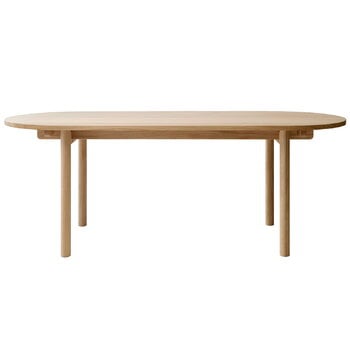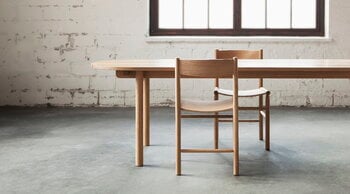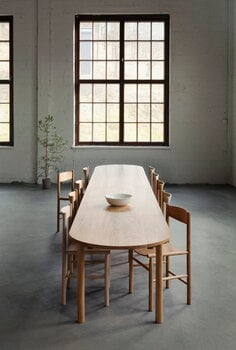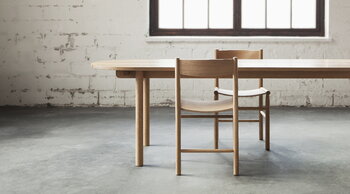Nikari’s Basic table is characterised by a minimalist design in which the material takes centre stage. “My design process began by thinking about a timeless table setting, the beauty of wooden surfaces and joinery details,” designer Jenni Roininen has said. The Basic table is part of Nikari’s timeless Café collection whose designs can be used in a variety of spaces from homes to offices and restaurants. The 200 cm table seats six people, while the 260 cm table seats eight.
Nikari products are made in Finland using only certified wood.











